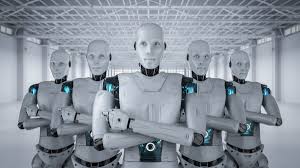Biological Characteristics
At its core, the human species, known scientifically as Homo sapiens, is defined by a set of biological characteristics. Humans possess a complex brain capable of abstract reasoning, language, empathy, and introspection. The average human brain weighs about 1,350 grams and features around 86 billion neurons, which play a crucial role in processing and transmitting information, allowing for high-level thinking and complex emotional reactions.
Physically, humans are also bipedal, meaning they walk on two legs. This evolutionary trait distinguishes them from most other mammals and has significant implications for human society and culture, enabling the use of tools and complex gestures.
Genetic Identity
Genetically, humans are remarkably similar, sharing approximately 99.9% of their DNA with each other. The minute 0.1% variation in DNA among individuals accounts for the observable differences, such as eye color, hair color, and even susceptibility to certain diseases.
However, it's the capacity for cultural transmission and adaptation that is genetically encoded in humans. Unlike other species, humans can learn and pass on knowledge and behaviors that aren't directly linked to survival but rather to societal advancement and personal fulfillment.
Social and Cultural Constructs
What truly sets humans apart is their inherent social nature and the complex cultures that have emerged from this trait. Humans create and live within societies with intricate laws, moral codes, and systems of governance that are continually evolving. These societies are built on the backbone of language and communication, which are uniquely sophisticated in humans.
Culture encompasses everything from art, music, and literature, which not only serve aesthetic purposes but also facilitate communication and emotional expression. The diversity in human cultures around the world is a testament to the adaptability and creativity of the human species.
Consciousness and Self-awareness
Another distinctive feature of humans is their level of consciousness and self-awareness. Humans are aware of themselves, their past, and potential future scenarios. This consciousness also manifests in the moral and ethical spheres, as humans often ponder the consequences of their actions not just for themselves but for their community and the environment.
Self-awareness allows humans to aspire, plan, and manipulate environments in ways that are profoundly complex.
Defining Humanity in the Age of AI
As we venture further into the age of artificial intelligence, the question of what makes something human becomes increasingly complicated. AI can simulate some aspects of human intelligence and emotion, but does that make it human? The answer lies in understanding the depth of human experience, which includes subjective feelings, consciousness, and a moral compass—qualities that AI cannot replicate.
The ongoing debate can be explored further at human or not. While technology continues to push the boundaries of what machines can do, the essence of being human remains tied to our biological, psychological, and social traits that are not easily replicated by algorithms or machines.
In sum, while artificial entities like robots or AI can exhibit some traits that are characteristically human, the full spectrum of what makes something genuinely human involves a complex interplay of biological, psychological, and social factors that currently go beyond the capabilities of technology.
